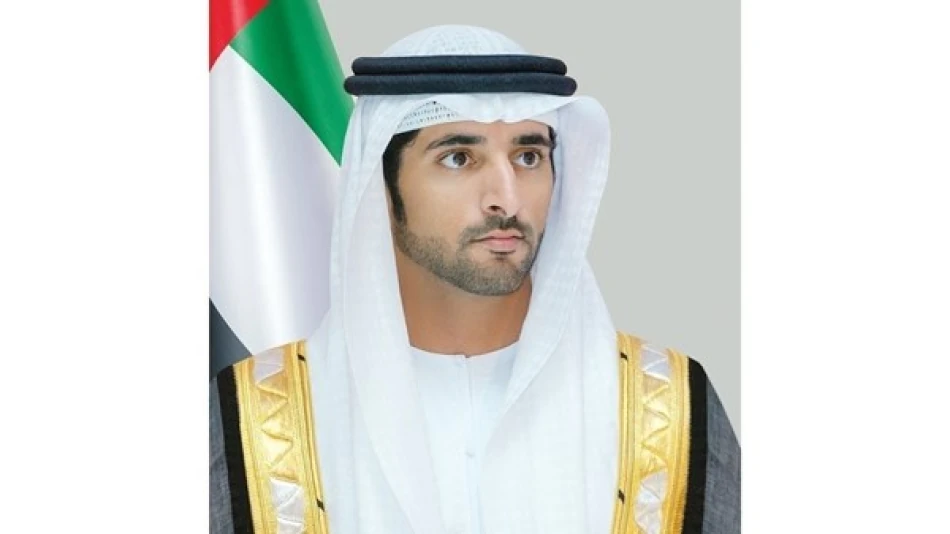
Dubai Marches Steadfastly Towards Leadership under Hamdan bin Mohammed's Visionary Steps
Dubai's Crown Prince Reaffirms Vision for Global Leadership in Future Cities
Dubai's Crown Prince Sheikh Hamdan bin Mohammed bin Rashid Al Maktoum has reinforced the emirate's commitment to maintaining its position as a global pioneer in urban development and innovation. In a strategic statement emphasizing continuity of leadership vision, the Crown Prince outlined Dubai's relentless pursuit of becoming the world's premier model for future cities.
Leadership Continuity Drives Strategic Vision
Speaking through his official social media channels, Crown Prince Sheikh Hamdan emphasized that Dubai continues to follow the pioneering path established by Sheikh Mohammed bin Rashid Al Maktoum, UAE Vice President and Prime Minister. This public reaffirmation signals institutional stability and long-term strategic planning—critical factors that international investors and multinational corporations consider when making significant regional commitments.
The Crown Prince's statement that Dubai "never stops, races against time, and creates the future" reflects the emirate's aggressive approach to maintaining competitive advantage in an increasingly crowded field of global business hubs.
Transforming Challenges Into Strategic Opportunities
Economic Resilience Through Innovation
The emphasis on converting challenges into opportunities carries particular weight given Dubai's track record during recent global disruptions. While many international cities struggled with pandemic-related restrictions, Dubai maintained relatively open borders and business-friendly policies, attracting significant capital flight from other regions.
This approach has proven effective in sectors ranging from cryptocurrency and fintech to logistics and tourism, where Dubai has consistently positioned itself ahead of regulatory curves that have constrained competitors.
Global Benchmarking Strategy
Dubai's explicit goal of achieving "number one" status places it in direct competition with established financial centers like Singapore, Hong Kong, and emerging rivals such as Riyadh and Abu Dhabi. The emirate's strategy appears focused on speed of execution and regulatory flexibility—advantages that have historically differentiated it from more established but slower-moving financial centers.
Market Implications for Investors and Businesses
For international businesses and investors, this leadership continuity statement provides several key signals. The emphasis on long-term vision suggests policy stability, while the focus on innovation indicates continued investment in emerging sectors and technologies.
The commitment to creating a "global model for tomorrow's cities" particularly resonates with the growing trend toward smart city investments and sustainable urban development—sectors where Dubai has already established significant infrastructure and expertise.
Regional Competition and Strategic Positioning
This reaffirmation comes as regional competition intensifies, with Saudi Arabia's Vision 2030 and Qatar's National Vision 2030 creating alternative hubs for international business. Dubai's response appears to focus on execution speed and proven track record rather than competing solely on scale or resources.
The strategy of transforming challenges into achievements has particular relevance as global economic uncertainty creates both risks and opportunities for agile jurisdictions willing to adapt quickly to changing international business needs.
Most Viewed News

 Layla Al Mansoori
Layla Al Mansoori






